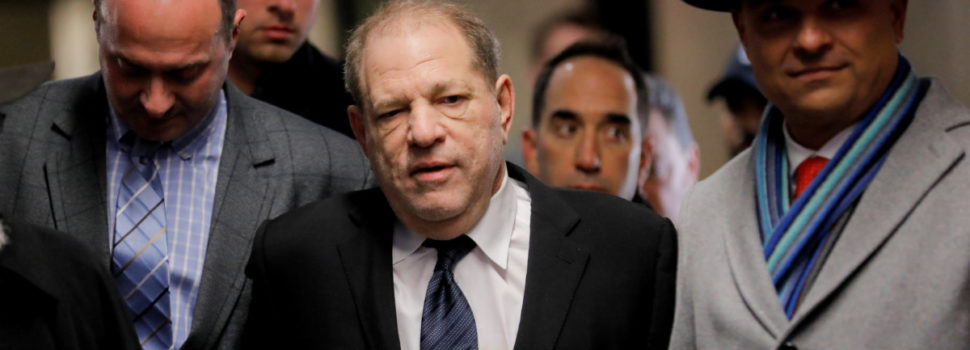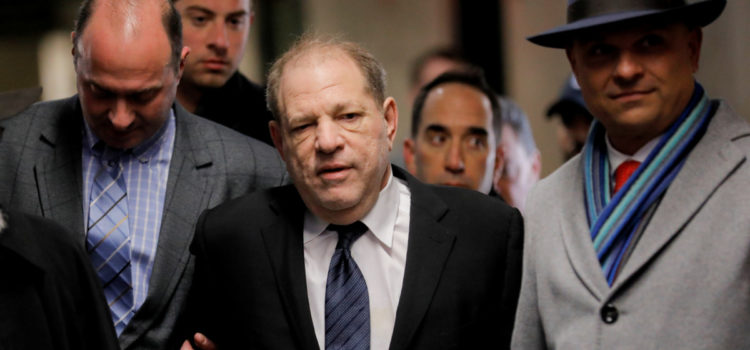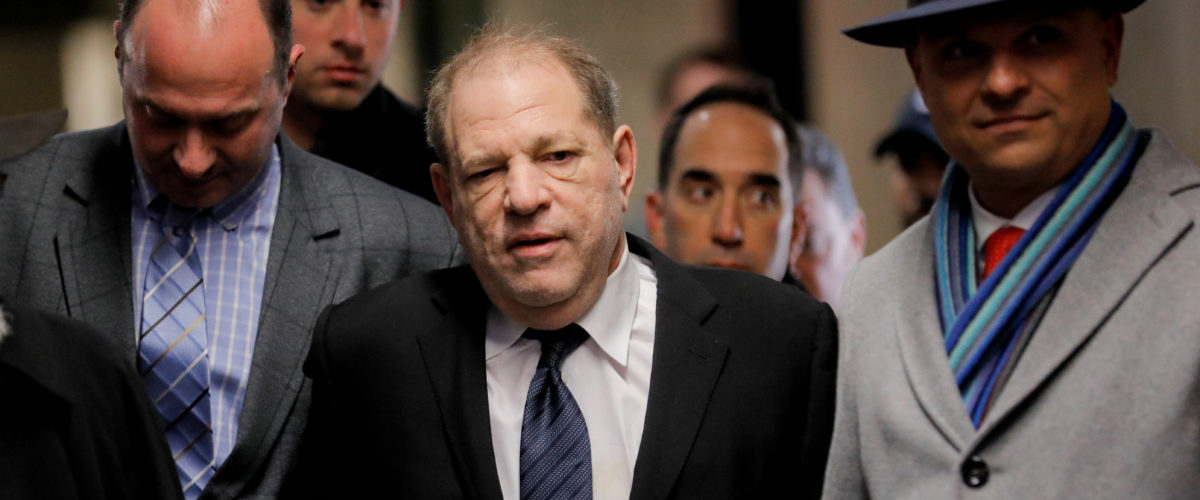


New York City, NY (Reuters) – Once-powerful Hollywood producer Harvey Weinstein arrived at a Manhattan courthouse today for opening statements in his rape trial, which has become a watershed moment for the #MeToo movement. Weinstein exited a white sports utility vehicle with help from two members of his team, one carrying the walker that Weinstein has used for recent court appearances as he recovers from recent back surgery.
The scene outside was quiet compared to the start of proceedings earlier this month, when Weinstein’s team complained that noisy sidewalk demonstrations could be heard inside the courtroom. “Better,” Weinstein said when asked how he was feeling by one of the roughly 100 reporters and photographers.
Asked by a reporter if he could get a fair trial, Weinstein replied, “Of course.” “Good lawyers,” he added. Both legal teams will make their opening statements today to a jury of seven men and five women.
Weinstein, 67, has pleaded not guilty to charges of assaulting two women. He faces up to life in prison if convicted of the most serious charge, predatory sexual assault.
His trial began on Jan. 6 and could last about six more weeks.
Since 2017, more than 80 women have accused Weinstein of sexual misconduct, fueling the #MeToo movement in which women have gone public with allegations against powerful men in business, entertainment and politics.
Weinstein, who reshaped the independent film industry with critically acclaimed pictures such as “The English Patient” and “Shakespeare in Love,” has denied the allegations and said any sexual encounters were consensual.
Justice James Burke told potential jurors last week that they must decide Weinstein’s case based on the evidence and not make the trial “a referendum on the #MeToo movement.”
On Tuesday, Weinstein lost his bid to move the trial out of the media glare of New York City to the suburban county of Suffolk or the state capital, Albany. The defense team sought a new venue partly because sidewalk protests against Weinstein could be heard in the court.
“While I could not make out every word of what was being chanted, I clearly heard the word ‘rapist’,” said a court filing by Weinstein lawyer Diana Fabi Samson, describing the protests that she heard from inside the court during jury selection.
Prosecutors are expected to paint Weinstein as a serial predator who abused his power, while the defense will try to show accusers’ behavior contradicted how victims would react to an assault.
One of the two main accusers in the Weinstein case, former production assistant Mimi Haleyi, has said publicly that Weinstein forced oral sex on her in his Manhattan home in 2006. The other, who has not been identified, was raped by Weinstein in 2013, alleges the Manhattan District Attorney’s office, which brought the case.
The prosecutors further allege that Weinstein raped another woman, actress Annabella Sciorra, in the 1990s. Although that allegation is too old to be charged as a separate crime, it will be presented to help establish Weinstein’s pattern of behavior as part of the case for predatory sexual assault.
State attorneys are expected to call up to three additional women, who are not mentioned in the charges, to bolster their case, according to court papers. A similar legal strategy helped Pennsylvania prosecutors convict comedian Bill Cosby in 2018 of sexually assaulting a Temple University employee.
Damon Cheronis, one of Weinstein’s lawyers, said at a hearing on Tuesday he intended to tell jurors in his opening statement that Weinstein’s accusers sent him “dozens of loving emails” and “bragged” about their sexual relationships with him.
Justice Burke ruled that Cheronis could describe the contents of the emails but not show them.
Legal experts said lawyers for Weinstein could try to show that the accusers engaged in consensual sexual activity in order to gain an edge in the entertainment industry.
Prosecutors last week accused Weinstein’s legal team of trying to exclude white women from the jury, which is comprised of six white men, three black women, one black man and two white women. Weinstein’s lawyers countered that their goal was to select a fair jury, citing specific reasons for excluding the women.
The state needs a unanimous jury to convict. A single holdout would produce a hung jury, although that would not prevent prosecutors from trying Weinstein again.
Regardless of the outcome, Weinstein faces additional charges in California.
Los Angeles District Attorney Jackie Lacey announced on Jan. 6 that Weinstein had been charged with raping one woman and sexually assaulting another in 2013.
